
In the world of electronics, resistors and IC chips act as the backbone of circuit design, ensuring optimal performance and functionality.
Like a symphony conductor guiding each instrument, resistors regulate the flow of current while IC chips orchestrate complex processes.
With their ability to limit current and divide voltage, resistors play a crucial role in signal conditioning.
Meanwhile, IC chips amplify signals and process information with precision.
Join us as we delve into the inner workings of these electronic components and uncover their vital roles in your circuits.
Key Takeaways
- Resistors control the flow of electric current and limit voltage levels.
- IC chips perform various functions in electronic devices and enable efficient operation.
- Resistors introduce resistance to oppose the flow of electrons and affect the overall performance and behavior of the circuit.
- IC chips are miniature electronic devices with interconnected components and are revolutionizing electronics.
The Purpose of Resistors in Electronic Circuits
Resistors play a crucial role in electronic circuits. They are used to control the flow of electric current, limit voltage levels, and provide impedance matching.
These passive electronic components are designed to resist the flow of current and convert electrical energy into heat. By introducing resistance into a circuit, resistors help regulate the amount of current passing through different components, protecting them from excessive currents that can result in damage or malfunction.
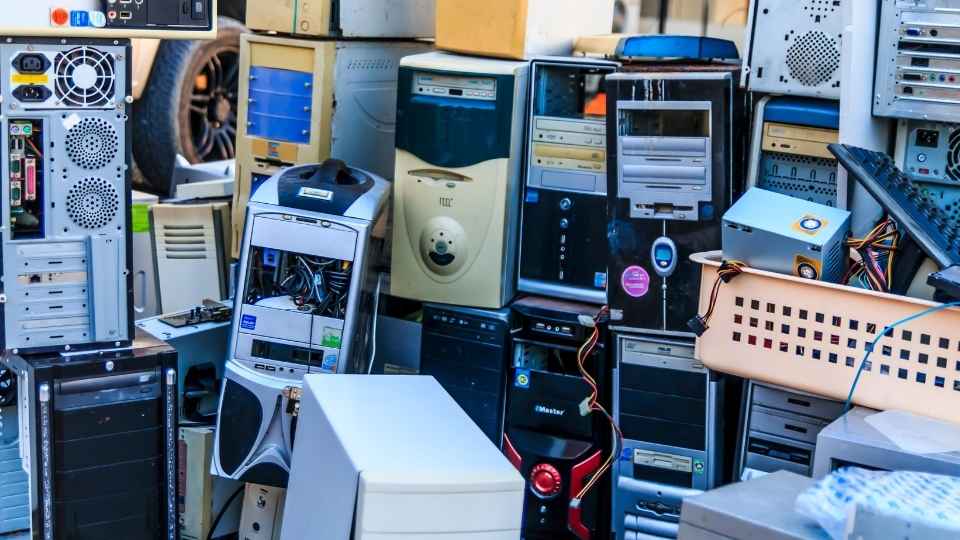
Additionally, resistors can be used to limit voltage levels by creating a voltage drop across themselves. This is particularly useful when connecting devices with different operating voltages.
Moreover, resistors also aid in impedance matching by adjusting the electrical characteristics of a circuit to ensure optimal power transfer between different components.
Overall, resistors are essential elements for maintaining stability and functionality within electronic circuits.
Understanding the Function of IC Chips in Your Circuit Design
Integrated circuit chips are essential components in circuit design, as they perform a variety of functions and enable the efficient operation of electronic devices. These small silicon-based chips consist of thousands or even millions of transistors, resistors, capacitors, and other electronic components interconnected on a single substrate.
IC chips can be classified into various types based on their functionality, such as microprocessors, memory chips, digital logic circuits, and analog signal processing circuits. Their purpose is to process and store information, control signals, amplify or attenuate signals, and interface with other devices in a system.
The integration of multiple components onto a single chip allows for compactness and improved performance while reducing power consumption. IC chips play a crucial role in the development of advanced technologies like smartphones, computers, automotive systems, medical devices, and many more applications that require freedom of design.
How Resistors Limit the Flow of Current in a Circuit
Resistors are passive electronic components that restrict the flow of electric current in a circuit. They achieve this by introducing resistance, which is a property that opposes the flow of electrons.
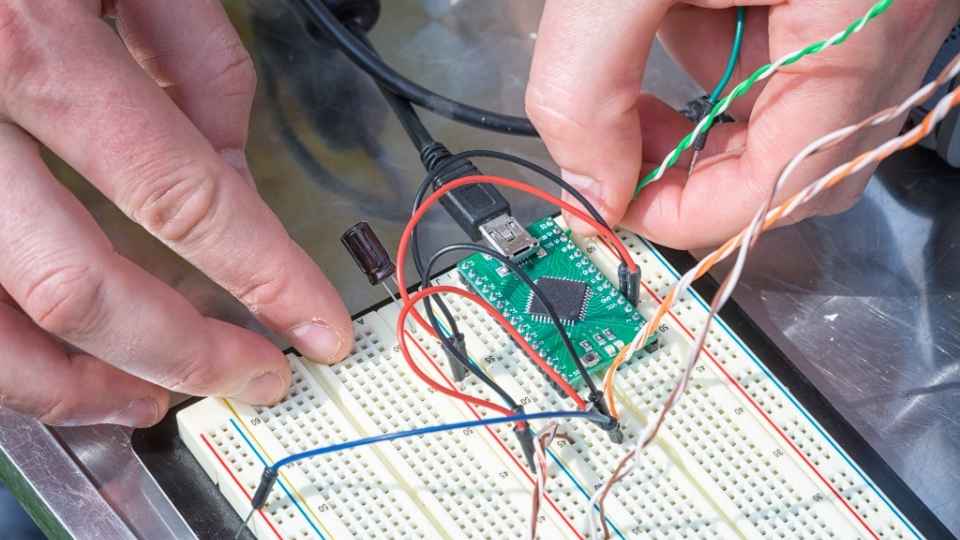
The amount of resistance offered by a resistor determines the extent to which it limits the current flow, ultimately affecting the overall performance and behavior of the circuit.
Purpose of Resistors
One of the key elements in an electronic circuit, resistors are essential components that regulate the flow of electrical current by providing resistance. They play a crucial role in maintaining stability and controlling the behavior of various electronic devices.
Resistors are primarily used to limit current flow, reduce voltage levels, divide voltages, and terminate transmission lines. By introducing resistance into a circuit, they help prevent excessive current from damaging sensitive components or causing unwanted effects. Resistors also enable precise control over voltage levels by creating voltage drops across their terminals.
Moreover, they are frequently employed in combination with other components like capacitors and inductors to create filters, oscillators, amplifiers, and many other circuits.
Overall, resistors serve as fundamental building blocks for designing complex electronic systems with reliable performance and functionality.
Impact on Current Flow
The presence of resistors in an electrical system significantly affects the flow of current throughout the circuit, allowing for precise control and protection against potential damage. By introducing resistance into a circuit, resistors offer the following benefits:
Control: Resistors can be used to limit the amount of current flowing through a specific part of a circuit. This allows for fine-tuning and adjusting the behavior of electronic devices.
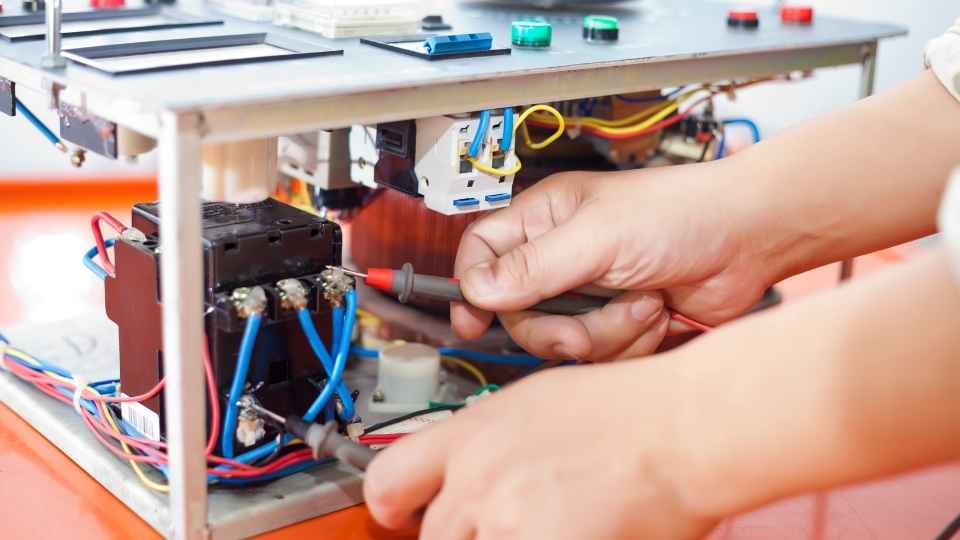
Protection: In some cases, excessive current flow can lead to overheating or even component failure. Resistors act as safeguards by limiting the amount of current that can pass through them, preventing damage to other components.
Voltage division: Resistors are commonly used in voltage dividers, which allow for different voltages to be created from a single power source. This is useful when powering multiple components that require varying voltage levels.
In understanding how resistors impact current flow, it is essential to delve further into their relationship with resistance and its effect on overall circuit performance.
Resistance is a crucial factor in determining the performance of an electrical circuit. It refers to the opposition encountered by current flow within a circuit. In terms of circuit performance, resistance plays a significant role in various aspects such as power dissipation, voltage drop, and signal integrity.
When designing electronic circuits that aim for freedom and efficiency, understanding resistance is essential. By carefully selecting resistors with appropriate values, we can control the flow of current and prevent excessive heat generation or power loss. Additionally, resistance affects voltage distribution across components, ensuring optimal operation within specified limits.
Furthermore, resistance influences signal integrity by affecting the frequency response and damping characteristics of a circuit. A high-resistance connection may introduce unwanted noise or distortion while compromising overall system performance.
Exploring the Different Types of IC Chips and Their Applications
IC chips, or integrated circuit chips, are miniature electronic devices that contain a large number of interconnected electronic components. They come in various types, each designed for specific applications.
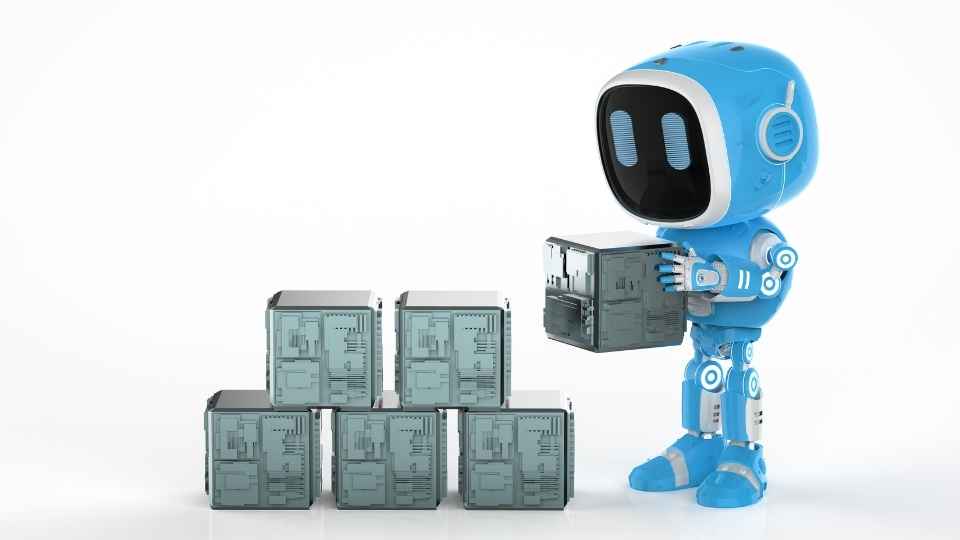
Exploring the different types of IC chips and their applications is crucial for understanding the wide range of functions they can perform in today's advanced electronic systems.
Common IC Chip ApplICations
One of the most common applications of IC chips is in digital logic circuits, where they are used to perform various computational tasks. These small electronic components have revolutionized the field of electronics and have become an integral part of numerous devices we use in our daily lives.
Some common applications of IC chips include:
- Microprocessors: These powerful chips serve as the brain of a computer or any other complex system that requires high-speed data processing.
- Memory chips: IC chips like RAM (Random Access Memory) and ROM (Read-Only Memory) are widely used for storing and retrieving data quickly and efficiently.
- Communication systems: IC chips play a crucial role in wireless communication devices, such as smartphones, by enabling seamless connectivity and data transmission.
With their versatility and compact size, IC chips continue to drive innovation across various industries, providing individuals with the freedom to create advanced technologies that shape our modern world.
Advantages of IC Chips
An advantage of IC chips lies in their ability to significantly enhance the speed and efficiency of data processing in various electronic systems.
Integrated circuits (ICs) are miniaturized electronic components that contain numerous interconnected transistors, resistors, capacitors, and other circuitry elements. These compact devices offer several benefits over traditional discrete components.
Firstly, IC chips can perform complex operations with great accuracy due to their precise manufacturing process. This enables them to execute tasks quickly and reliably, making them ideal for high-speed applications such as microprocessors and digital signal processors.
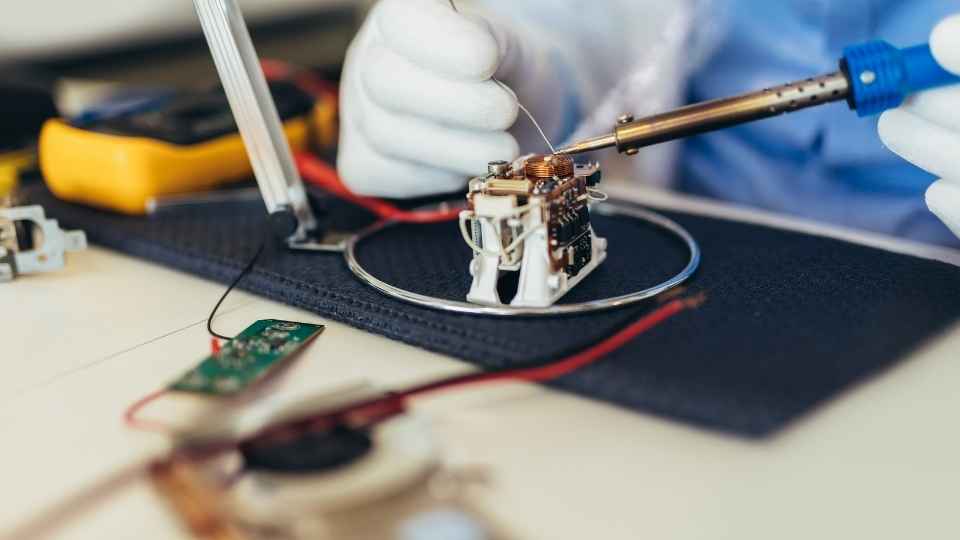
Secondly, the integration of multiple components onto a single chip reduces the physical size of the system while increasing its reliability by minimizing external connections.
Additionally, these chips often consume less power compared to discrete circuits, resulting in energy-efficient operation and longer battery life for portable devices.
Overall, IC chips provide significant advantages in terms of speed, efficiency, size reduction, reliability, and power consumption for a wide range of electronic systems.
The Importance of Resistors in Voltage Division and Signal Conditioning
Resistors are vital components in voltage division and signal conditioning, as they help regulate the flow of current and adjust the amplitude of electrical signals. They play a crucial role in electronic circuits by providing resistance to the flow of current.
Here are three important functions of resistors:
Voltage Division: Resistors are used to divide a voltage into smaller parts. By connecting resistors in series or parallel, different voltages can be obtained from a single power source.
Current Limiting: Resistors are commonly used to limit the amount of current flowing through a circuit. This is important for protecting sensitive components from excessive currents that could cause damage.

Signal Conditioning: In signal processing applications, resistors are used to modify the amplitude or shape of electrical signals. They can attenuate or amplify signals depending on their values.
Resistors provide flexibility and control in electronic circuits, allowing engineers to tailor the behavior of their designs according to specific requirements.
Transitioning into the subsequent section about IC chips, these integrated circuits further enhance signal processing capabilities through amplification and advanced signal manipulation techniques.
The Role of IC Chips in Amplification and Signal Processing
Integrated circuit (IC) chips are essential components in electronic systems. They provide amplification and advanced signal processing capabilities that enhance the performance of various applications.
These chips consist of multiple interconnected transistors, resistors, capacitors, and other passive components on a small semiconductor wafer. Their primary function is to amplify weak electrical signals and process them into desired forms for transmission or further manipulation.
IC chips can perform tasks such as analog-to-digital conversion, digital signal processing, and frequency modulation/demodulation. They enable the miniaturization of complex circuits and the integration of numerous functions onto a single chip.
This versatility allows for the creation of compact devices with enhanced functionality and improved power efficiency. As technology advances, IC chips continue to play a crucial role in shaping the future of electronics.

They enable smaller, more powerful, and efficient electronic systems that empower individuals with freedom in their choice of devices.
Common Issues and Troubleshooting Tips for Resistors and IC Chips in Circuits
When working with resistors and IC chips in circuits, it is important to be aware of common issues that may arise and troubleshoot them effectively. Here are three key areas to consider:
Overheating: Excessive current or voltage can cause resistors and IC chips to overheat, leading to performance degradation or even failure. To prevent this, ensure the components are rated for the intended application and monitor their temperature during operation.
Incorrect values: Using resistors with incorrect resistance values or IC chips with incompatible specifications can result in circuit malfunctions. Double-check component datasheets and verify connections to ensure accurate values are being used.
Electrostatic discharge (ESD): Static electricity can damage sensitive components like IC chips. Implementing ESD protection measures such as grounding straps, antistatic mats, or handling tools will help safeguard against ESD-related failures.
Frequently Asked Questions
Can Resistors and IC Chips Be Used Interchangeably in ElectronIC Circuits?
Resistors and IC chips cannot be used interchangeably in electronic circuits. Resistors are passive components that regulate current flow, while IC chips are active components that integrate multiple functions like amplification, logic, and memory.
What Are Some Common Materials Used to Make Resistors and IC Chips?
Common materials used to make resistors include carbon, metal film, and wirewound. IC chips are typically made from silicon or germanium, with various layers of semiconductor materials and metal interconnects for circuit functionality.
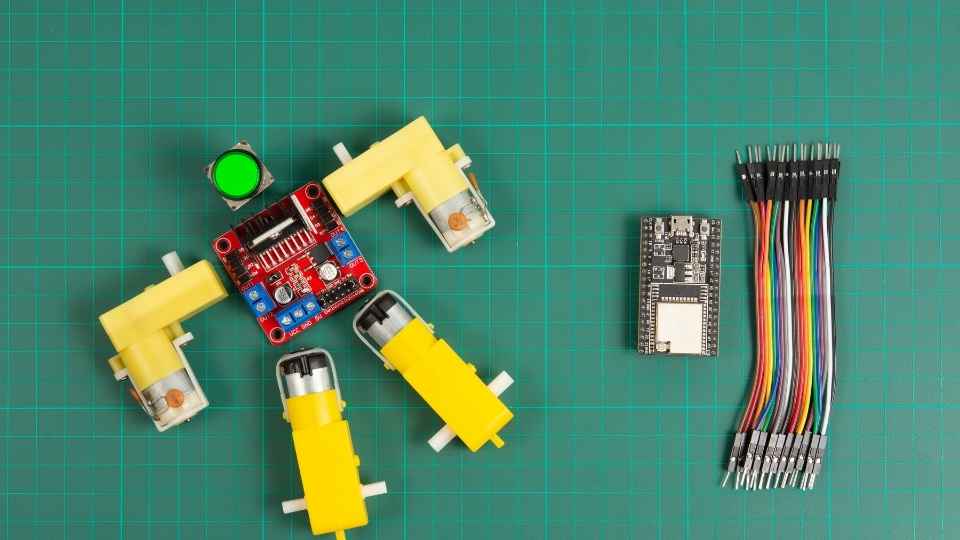
Resistors and IC chips are crucial components in a circuit as they determine the flow of current, regulate voltage levels, and enable the desired functionality. Their selection and placement impact the overall performance and efficiency of the circuit.
Can Resistors and IC Chips Be Easily Replaced if They Fail or Become Damaged?
Resistors and IC chips can be replaced if they fail or become damaged, but the ease of replacement depends on various factors such as the complexity of the circuit, availability of compatible components, and technical expertise required for replacement.
Are There Any Safety Precautions or Guidelines to Follow When Working With Resistors and IC Chips in Circuits?
When working with resistors and IC chips in circuits, it is crucial to follow safety precautions and guidelines. These include handling components properly, using appropriate tools, avoiding static electricity, and ensuring proper power supply voltage to prevent damage or injury.
 Basic Electronics ConceptsEssential ToolsCircuit Design BasicsMicrocontrollersDIY Electronics ProjectsRoboticsPrivacy PolicyTerms And Conditions
Basic Electronics ConceptsEssential ToolsCircuit Design BasicsMicrocontrollersDIY Electronics ProjectsRoboticsPrivacy PolicyTerms And Conditions
